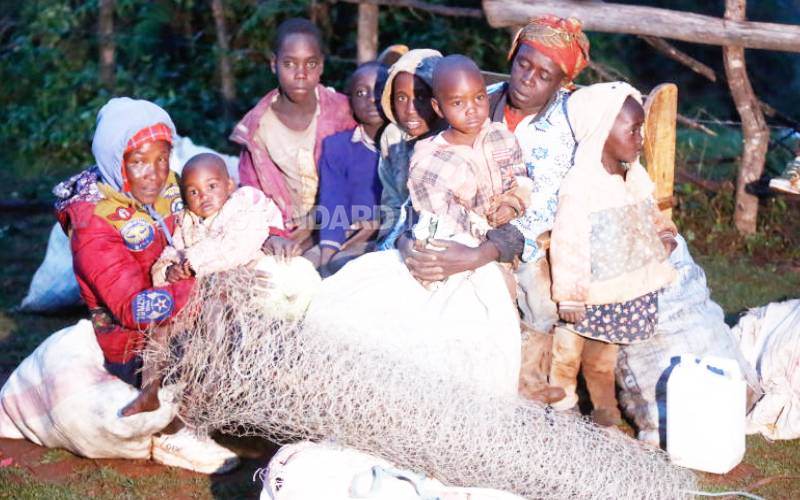×
The Standard e-Paper
Home To Bold Columnists

Residents who fled from the Mau Forest's Sierra Leone area in Narok South rest by the roadside at Chepokundi in Kuresoi South, Nakuru, on Saturday night. [Kipsang Joseph, Standard]
Senior Government officials, politicians and ranch owners who hived off land in Mau Forest and sold it to locals now face arrest and prosecution.